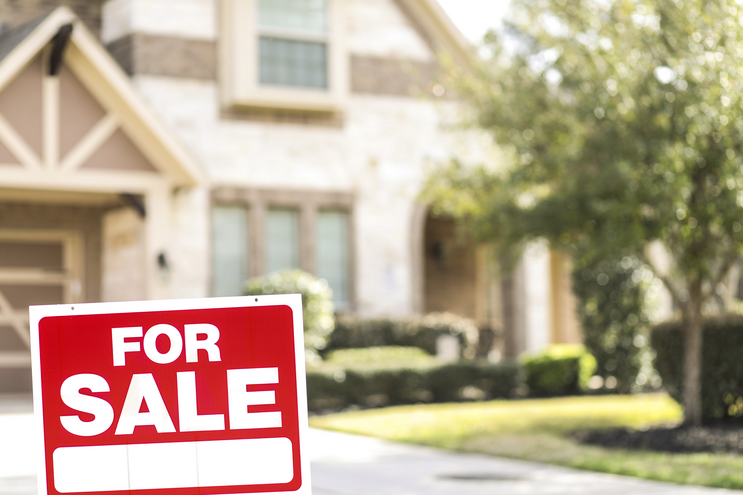This article was updated January 31, 2024
Starting a real estate business checklist:
- Craft a real estate business plan
- Form a real estate LLC
- Devise real estate marketing strategies
- Build your real estate website
- Grow your network
What is a real estate business?
A real estate business deals with the buying, selling, property management, or investment of real estate property.
Owning a real estate brokerage allows you to have significant financial freedom, learn more about your neighborhood, help families find their dream homes, and be your own boss. Plus, you get to become an integral part of your local small business community.
While starting a real estate business from scratch can be one of the most exciting things you’ll ever do, it can also be one of the most stressful.
Fortunately, there are things you can do to minimize the stress involved in starting your own real estate business.
If you're getting ready to start your real estate career, there are several steps you will have to consider before you can get going. In this article, we’ll cover all you need to know about how to start a real estate business from scratch. By following these steps, not only will you get your real estate career off the ground, you’ll lay the groundwork for future success.
Entering real estate
Before you start your own real estate business, it’s important you gain experience in the field. Most people will need to do the following to eventually start their own real estate brokerage:
- Choose the right career path - There are many careers that you can pursue in the real estate industry. Some of the careers include becoming a real estate agent or a real estate broker, or starting a real estate business that focuses on real estate investment or property management. It is important to define which path would be the best fit for you as it will determine which licenses are required before starting your business.
- Become licensed - First and foremost, become a licensed real estate agent. Although each state has different timelines and procedures to get your real estate license, it’s a requirement no matter where you go. Pay special attention to your state’s unique protocols when it comes to pre-licensing and renewal policies.
- Join a brokerage firm – Because many states require you to work for a brokerage firm or real estate business for two to three years, it’s a good idea to search for a suitable brokerage immediately after obtaining your license. Although there are many national brokerages to choose from, if you’re interested in opening your own real estate business one day, it may be beneficial for you to gain experience in a small local brokerage.
- Build your contacts - It’s never too early to start growing your network—whether that’s professional contacts or potential clients. For starters, join the National Association of Realtors. Then, spend time building a contact list you can reach out to when you start your own brokerage.
- Find a mentor - As you embark on a new professional journey, get in touch with someone who can show you the ins and outs of the business. A mentor can help you with everything from real estate branding tips to creating a real estate business plan. Learn from professionals who are already succeeding in the real estate industry to gain a competitive advantage over other companies.
Once you’ve gained valuable experience with a brokerage, it’s time to start thinking about starting your own local real estate business and reaching out to potential clients.
How to start a real estate business
Starting your own real estate company can be challenging. However, by following the steps below, you’ll set your real estate business up for long-term success.
Step #1: Craft a real estate business plan
A well-crafted business plan is your roadmap for success. In addition to laying out your goals and vision for the real estate brokerage, a business plan helps you think through income and expenses, marketing strategies, and action plans.
In general, your business plan should include the following:
- Foundation statements
- Financial plans
- Marketing strategies
- Action plans
Foundation statements are especially important. In addition to telling the story of your real estate business, they help build your brand’s voice and identity. Many small real estate businesses may even choose to include them on their websites.
For example, Schaffer & Company Realtors, based in Lodi, California, is a small real estate business with a big-time presence. They differentiate themselves from their competitors by mentioning their foundational values—discipline, accountability, and teamwork—in their “About” section.
The more time you spend on your business plan, the easier it will be to get your brokerage up and running. To this extent, strong business plans can entice potential investors, while shoddy plans may drive them away.
Step #2: Form a real estate LLC
With a solid business plan in hand, the next step is to form a real estate LLC. Simply put, a limited liability company (LLC) is a business structure that protects investors from profit loss. Without an LLC designation, your real estate business may not be able to attract investors.
While each state has different regulations and procedures when it comes to starting an LLC, you’ll generally need to do the following:
- Choose a business name
- File an Article of Organization with your state
- Create an operating agreement
- Apply for a tax identification number through the IRS
Once you’ve established an LLC, your real estate business is legally recognized by the state. Now, it’s time to think about marketing your brokerage. Consider the different marketing materials you'll need to promote your real estate company and create a budget on how much you are willing to spend on marketing.
Step #3: Devise real estate marketing strategies
After time, research, and navigating plenty of spreadsheets, you’ve developed a business plan to be proud of. In order for your plans to come to fruition, however, you’ll need one essential element: clients. To grow your business, it’s necessary to reach your target demographic. A good idea is to base your real estate marketing strategy on your demographic. By crafting your marketing strategy and message on your target audience, you’ll be able to build a strong list of leads.
For example, if you’re interested in targeting first-time homebuyers in their early 30s, you might want to base your marketing strategy around social media. On the other hand, if you’re marketing towards older buyers looking for vacation homes, you might consider more traditional methods, such as direct mail.
Common real estate marketing strategies include using the following:
-
Direct mail – A classic lead-generating medium, marketing through direct mail has unique perks. For instance, many real estate agents still rely on postcards and handwritten letters to reach their clientele. Letters may be particularly effective for local small real estate businesses as they seek to evoke a strong sense of community.
-
Email – The most cost-effective way to reach a large number of clients is through email. Keep your content succinct but eye-catching. Try offering tips and tricks for those who are looking for a new home (or those looking to sell). That way, your newsletters will always have pearls of wisdom the recipients will appreciate and remember you for.
-
Social media – Marketing real estate through social media platforms is a fantastic way to spread the word about your real estate business. Social media may be particularly effective if you’re targeting younger buyers and sellers. Use your posts to to showcase your new offices, homes you’re selling, infographics, and testimonials
-
Local advertising - Advertising in your local newspaper or TV station is a smart strategy to grow your brand’s awareness. Local ads typically don’t cost much and they’re an effective way of engaging with your community. You could also shift your focus to Nextdoor advertising. By becoming a Neighborhood Sponsor you’ll be able to build awareness and grow your reputation into the hands of buyers and sellers in the ZIP codes that matter most to your business.
Whichever marketing route you choose, it’s good to select a couple of strategies that you can devote appropriate resources to. Just because you’re targeting younger buyers, for instance, doesn’t mean it won’t be advantageous to build a solid email list. Grow your clientele quickly by using all of the marketing channels at your disposal.
Step #4: Build your real estate website
In today’s digital age, an Internet presence is as essential as electricity to a business. The key to gaining a solid foothold on the Internet is to create an informative and accessible website.
When creating your real estate business’s website, consider doing the following:
- Use easy website creators (at least until you get more comfortable with website creation) such as Wix, WordPress, or Squarespace.
- Place your values and mission statement on the homepage.
- Research the best SEO search terms for your business so that your webpage can be easily found online.
- Make your website crisp, clean, and simple. Your site should take user experience into account by making it easy for your clientele to navigate and find the information they’re looking for.
- Include a blog on your website. Blogs are a smart way to keep your clientele apprised of what you’re doing. They also help build a sense of community. For example, located in Boone, N.C, Boone Real Estate has an accessible website that mentions their blog on the homepage. Many posts focus on the hyperlocal, offering readers an inside look at the Western N.C. real estate market.
Additionally, consider setting up a free Nextdoor Business Page. The best way to reach hyperlocal audiences, Nextdoor allows you to promote your business by posting services, offerings, and mission statements directly to your Business Page. Businesses with a claimed Page and one recommendation will be discoverable by search, which is why a Nextdoor Business Page would be a great way to reach potential buyers or sellers.
Step #5: Grow your network
The best way to ensure your real estate business’s future success is to continually grow your network. In addition to implementing marketing strategies, keep growing your clientele base by focusing on the following:
- Launching new campaigns – Consistently launching new campaigns is essential for small real estate businesses. For example, if it’s been a while since you last sent a mass email to your contact list, send one around a holiday with a holiday-themed promotion or advice.
- Keeping track of leads – The more successful your real estate business becomes, the more leads you’ll have. Devise a system to organize your leads so that you know which need immediate attention and which can wait for follow-ups.
- Maintaining strong relationships – Always maintain strong relationships with people in your network. Personal networks are a major source of new leads.
Growing your real estate business network takes time. However, by launching new campaigns, keeping track of leads, and maintaining strong relationships, you’ll see your business grow faster than anticipated.
Start your real estate business the right way with Nextdoor
Starting a real estate business from scratch takes time, effort, and money. However, there are a few steps you can take to minimize the stress of starting a new business and start reaping some rewards.
By following the above steps, you can establish your LLC and start generating leads without all of the extra headaches. From crafting a business plan to growing your network, turn your dream of owning a real estate business into a reality.
Start your local real estate business the right way. Nextdoor helps small business owners stay on the pulse of their community, reach potential clients, and stay up to date with all the local news. Nextdoor is where neighborhoods happen, so it’s a perfect place to help launch your real estate business.
Learn more here.
Sources:
Fortune Builders. How To Start A Real Estate Business In 10 Steps [Updated 2021]. https://www.fortunebuilders.com/a-beginners-guide-to-starting-a-real-estate-business/
HubSpot. How to Plan, Start, & Grow a Real Estate Business: 22 Essential Tips. https://blog.hubspot.com/sales/real-estate-business
Schaffer & Company Realtors. About. https://www.realestateinlodi.com/about/
Claim your free Business Page to get started on Nextdoor. For resources on how to use Nextdoor to stay connected with your local customers, pertinent news affecting businesses, and more, follow us at @nextdoorbusiness on Facebook.






